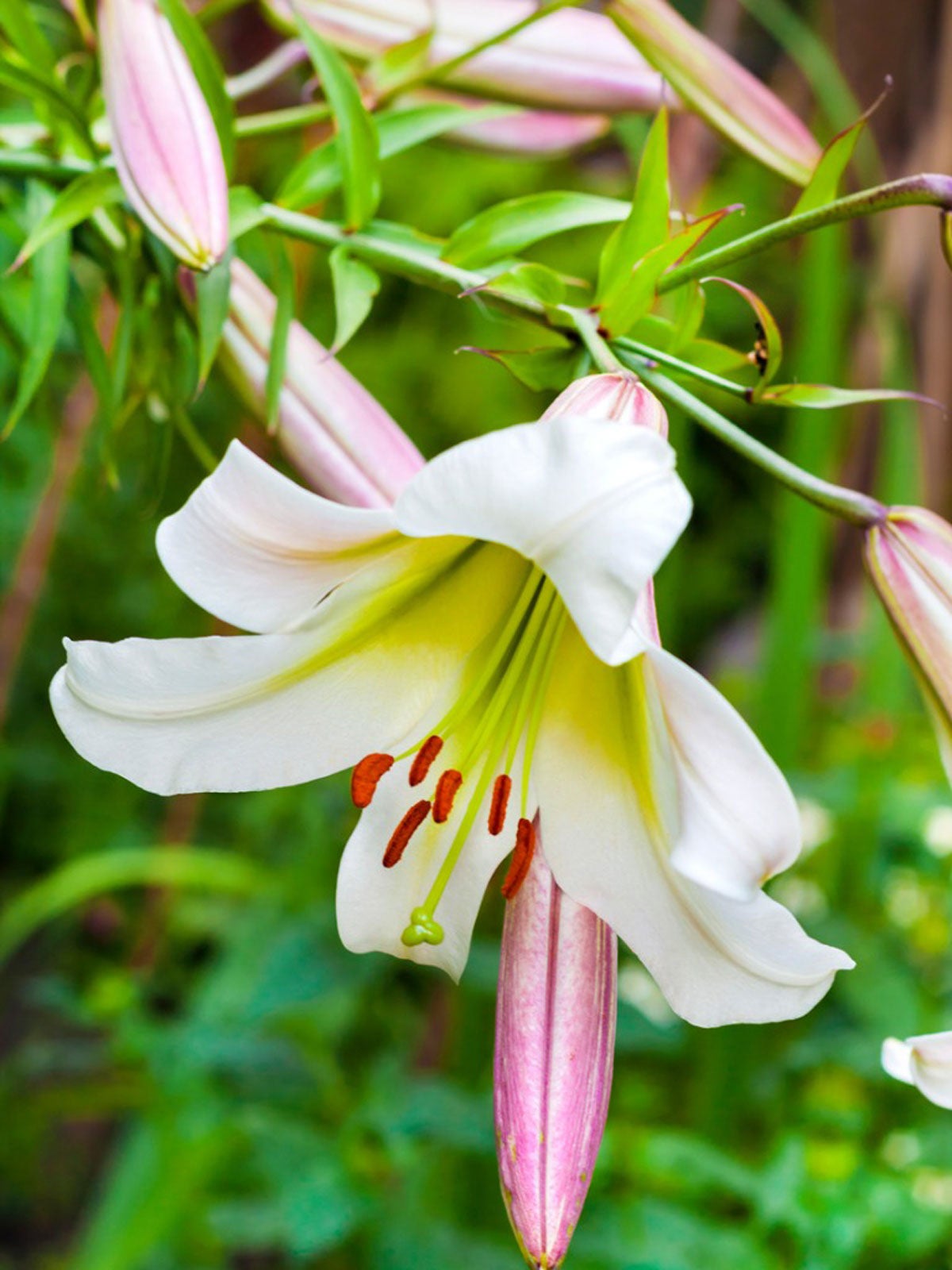Regal Lily Care – Tips For Growing Regal Lilies


Sign up for the Gardening Know How newsletter today and receive a free copy of our e-book "How to Grow Delicious Tomatoes".
You are now subscribed
Your newsletter sign-up was successful
The name regal trumpet lily says it all about this grand perennial. The stalks grow several feet (1 m.) tall and bloom in a profusion of lovely scented, 6 inch (15 cm.) flowers. Great in perennial borders, among other lilies, and grown for cuttings or even in containers, the regal lily gives you showiness without a lot of effort.
About Regal Trumpet Lilies
Lilium regale, or regal lily, is a stunning species of lily native to southwestern China and suitable for growing in USDA zones 4 through 8 in the U.S. The name describes the tall stature and striking flowers, up to 6 feet (2 m.) tall with blooms that are about 6 inches (15 cm.) long.
The flowers are white, trumpet shaped, and blush purple on the outside. The interior of the flowers is streaked with yellow. While the flowers of the regal lily are visually stunning, their sweet fragrance adds another element gardeners love. Plant clusters near a patio to enjoy the perfume of the regal lily on still summer nights.
Growing Regal Lilies
Regal lily bulbs can be planted in fall or even early spring. Plant them to a depth of about 6 to 8 inches (15-20 cm.). They should be spaced 18 to 24 inches (46-61 cm.) but include at least three per cluster for the best results.
The soil should drain well but, otherwise, lilies aren’t very particular about soil type. Plant regal lily in a spot that gets full sun or only partial shade.
Regal lily care is not difficult. Once they start growing, and as long as the soil stays slightly moist, they don’t need much maintenance. The stems are tall but sturdy, so staking isn’t always required. You may need to stake if they grow very tall or if the plants are not protected from wind. Remove spent blooms as they finish flowering and keep mulch around the bases of the plants.
There are a few pests that may bother your regal lilies. The lily leaf beetle and aphids can be damaging. An insecticidal soap will help manage them. Management is especially important with aphids, as they can spread mosaic virus, which is untreatable.
Sign up for the Gardening Know How newsletter today and receive a free copy of our e-book "How to Grow Delicious Tomatoes".

Mary Ellen Ellis has been gardening for over 20 years. With degrees in Chemistry and Biology, Mary Ellen's specialties are flowers, native plants, and herbs.